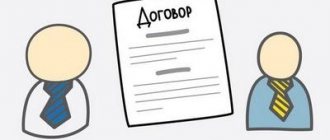There are many vacancies and positions in which a foreign language is necessary and mandatory. English is required more often than usual, other languages less often.
To make your resume look professional, you need to correctly and correctly indicate your knowledge of foreign languages in your resume. To do this, I recommend using generally accepted international standards.
There are a few exceptions to this:
- If you don't know the language at all, don't write about it on your resume.
- If you know the language at an elementary level, you can write “basic knowledge.”
- If you are fluent in the language, you can write it like this: “fluent.” Additionally, you can indicate the level of knowledge in the international classification.
Job sites are misleading
In the process of writing a resume, I often have to look at resumes for different positions. I often see strange descriptions of knowledge of foreign languages.
Here I will give several ambiguous options for how to describe the degree of proficiency in a foreign language on a resume.
For example, this is what the website hh.ru suggests choosing in the English language column:
- I don't own it.
- Basic knowledge.
- I read professional literature.
- I can do the interview.
- Speak fluently.
The website rabota.ru offers you to choose your level of English proficiency from the following options:
- Elementary.
- Average.
- Advanced.
- Speak fluently.
In general, each site introduces its own scale, instead of using international standards. And people themselves sometimes describe their skills in flowery terms. This confuses both applicants and employers. Simply only for those who do not know the language at all or speak it fluently.
Good move! You can indicate two types of assessment of language knowledge - write in your own words and indicate the level in brackets according to the international classification.
Below I will list the generally accepted degrees of knowledge of foreign languages in a resume, and this will allow you to write about your knowledge correctly.
Brief description of each level
- Beginner or Elementary.
- Pre-Intermediate (pre-threshold).
Simple
tenses , as well as
the Past Continuous
,
Present
and
Past Perfect
.
The questions asked become more diverse, knowledge allows the use of the constructions to be going to
,
used to do
and
to be used to
, as well as modal verbs and passive voice (
A big red apple was bitten by rabbit
). - Intermediate (B1 average).
A person can conduct a dialogue, but sometimes he has to choose his words.
From this stage it is necessary to begin careful work on vocabulary. Student B1 understands when to use certain tenses. Knows how to make a sentence in Present
,
Past
and
Future Continuous
,
Present
,
Past
and
Future Perfect
;
Present
,
Past
and
Future Perfect Continuous
, can compare adjectives and change direct speech to indirect. - Upper-Intermediate (above average).
A person speaks the language in order to communicate freely on any topic, understand and answer any questions, understands the coordination of tenses and the peculiarities of using conditional sentences, confidently conducts formal and informal correspondence in English, including in real time, without delays . - Advanced (advanced marked C1).
A person forms his thoughts in English on any topic, with the exception of highly specialized ones, in which problems with professional vocabulary may arise. Understanding English speech by ear, watching videos and TV series without translation, reading authentic literature, the ability to joke - these are the main skills that someone who knows English at an advanced level acquires. - Proficiency (language proficiency at the native level).
The last stage and degree of training. What can a person do when he reaches the top? Independently and quickly compose a monologue or story in written and oral form without prior preparation on any topic. A person works with original documents, can present a company at a meeting, reads original classic non-adapted literature, can teach English at a prestigious university of world significance.
Knowing the language at this level is necessary in order to survive in an English-speaking country. Learn a language before Beginner, Elementary means learn the basics: alphabet, articles, pronouns, tenses
Simple
. In addition, a beginner must know that a verb has three forms (do / did / done), verbs can be regular and irregular, and also be able to talk about basic needs (I’m thirsty! How to get to the hotel? Can you help me?)
Levels of proficiency and knowledge of English for resumes
Russia has adopted an international system for indicating proficiency in English, so I recommend using it.
| International level scale | European level scale | Your knowledge at this level |
| Elementary | A1 Survival level | You can communicate in basic terms, read simple texts on familiar topics, and understand slow simple speech. |
| Pre-Intermediate | A2 Pre-threshold level | You can communicate on everyday topics, know how to write letters and understand simple speech. |
| Intermediate | B1 Threshold level | You communicate freely in everyday life, know how to express your opinion and conduct a dialogue. You understand speech, read adapted literature, and can correspond. |
| Upper-Intermediate | B2 Threshold advanced level | You communicate freely, including with native speakers, read unadapted literature and complex texts. |
| Advanced | C1 Professional proficiency | You communicate freely on any topic, understand the subtleties and nuances of language and structures, and can change your communication style depending on the situation. |
| Proficiency | C2 Mastery | You speak the language perfectly. |
English proficiency levels
The following gradation is most often used to indicate the level of English language proficiency:
Elementary/Basic/Beginner - basic, with a dictionary, the basics of the language. In practice, most often, this means that you once studied English at school, you remember some common phrases, but in life you practically did not use English.
Pre-Intermediate - slightly higher than basic. You can express yourself in simple phrases, using facial expressions and gestures. You will understand what is written in the letter in English, but you will most likely be able to compose your own letter using a dictionary.
Intermediate - average level of English language proficiency. Don't be afraid to speak English, build simple language structures. The vocabulary is small, but sufficient to explain things in a simple way. In the professional sphere, Intermediate means that you can compose a letter in English, will not be at a loss to speak in English, and can solve typical problems using English without going into subtleties.
Upper-Intermediate - confident level of English language proficiency. Usually this is the actual level of a graduate of the Faculty of Foreign Languages (although most graduates write that they have Advanced or Fluent). This level implies that you can express yourself freely and have a fairly rich vocabulary. But at the same time, you may not be fluent in professional terminology and may make minor mistakes in speech. For most jobs involving the use of English, the Upper-Intermediate level will be sufficient.
Advanced/Fluent - fluent in English. You can easily use both spoken and written English and can simultaneously translate from/to English. This is the level required for a translator position.
Another possible classification that you may come across (and it can be used for any language, not necessarily English):
- A1 – Beginner/Elementary
- A2 – Elementary
- B1 – Pre-Intermediate
- B2 – Upper-Intermediate
- C1 – Advanced 1
- С2 – Advanced 2 (Proficiency)
This is a unified European system, which is not very well known in Russia, but, nevertheless, is widely used in the world.
Levels of proficiency and knowledge of German or Spanish for resumes
To indicate knowledge of German or Spanish, the European standard is suitable.
| European level scale |
| A1 , Survival level |
| A2 , Pre-threshold level |
| B1 , Threshold level |
| B2 , Threshold advanced level |
| C1 , Professional Proficiency |
| C2 , Mastery |
English level for resume
September 23, 2014
1084
2
The level of English for a resume is of particular importance, since for many vacancies the correctly indicated language level has a significant impact on the positive outcome of the interview.
In order to indicate the correct language level for your resume, refer to the text of the vacancy. Since the word fluency and fluent English appear more often in such texts, it is better to write fluent. The names Upper-Intermediate or, for example, A2 are also possible.
In any case, do not try to overestimate the actual level of your language, it is easy to check by asking a couple of questions, and if the employer has doubts about the reliability of your level of language proficiency, he can rightfully doubt the rest of your resume.
How to correctly determine your level of English for a resume? According to the European system for determining language level, there are six levels of English language proficiency.
The first level A1 (Beginner) assumes that the speaker understands and can use in speech familiar phrases and expressions necessary to perform specific tasks. Also, a person with level A1 can participate in a simple conversation if the interlocutor speaks English slowly.
Further, level A2 (Elementary) means that the speaker’s level of English allows him to understand individual sentences and frequently encountered expressions related to the main areas of life. Moreover, level A2 means that the speaker can talk about himself, his family and friends, describe the main aspects of everyday life, i.e. already at this level you can write a simple resume in English.
If you are a lucky owner of the B1 (Intermediate) level, you can understand clear messages made in literary language on various topics that typically arise at work (for example, writing a resume), study, etc. You also know how to communicate in most situations that may arise while in the country of your target language.
If your level is B2 (Upper-Intermediate), you understand the general content of complex texts on abstract and concrete topics, including highly specialized texts. At this stage, you can translate your resume into professional English yourself. You can also speak quickly and spontaneously enough to constantly communicate with native speakers without much difficulty for either party.
If your level is C1 (Advanced) and higher, then you understand voluminous, complex texts on various topics, recognizing hidden meaning. You also speak spontaneously at a fast pace, without difficulty finding words and expressions. Communication on scientific and professional topics is also not difficult.
If you are still not sure what level your knowledge of the English language corresponds to, you can take an English language proficiency test. For example, a free test on the English-and-Skype website. It will allow you to easily and quickly determine not only your level of English for a resume, but also weak points in your grammar.
If you have a certificate confirming your level of English, feel free to write about it in your resume. Write the name of the certificate and the rating in parentheses, but you may have to explain at the interview what kind of certificate it is if you are applying for a job in a Russian company.
If you are just thinking about getting a certificate and are deciding which exam to take, then it all depends on your goals. If your language level is defined as B1-B2, and your work requires close professional communication with foreigners, you can safely prepare to take the BEC Vantage (Business English certificate) exam, which is recognized by employers all over the world. This valuable document provides proof that you have good knowledge of business English, so it will be a highlight of your CV.
Moreover, if your level is below B1, but your plans are for long-term cooperation with foreign clients, you can also take the BEC (Business English Certificate) exam, but not BEC Vantage, more suitable for levels B1-B2, but BEC Preliminary, designed for levels A2-B1.
If your level of English is at level A2-B1 and you would like to further develop in a professional environment, as well as highlight your successes on your resume, you can take the FCE exam (First Certificate in English), which confirms your language skills and the level of your English according to the International English Language Level Scale.
Another exam that confirms your level of English is IELTS, which tests your knowledge of British English. Listing the IELTS test on your CV will give you an edge over other candidates for the desired position.
If your professional aspirations lie in the field of American English, then the TOEFL American English exam will allow you not only to show the actual level of your language, but will also be useful when applying to MBA programs abroad, and will perfectly complement your resume.
Another worthy decoration for your resume will be TOEIC® (Test of English for International Communication TM). TOEIC® is a standardized exam to test the English language skills of non-native speakers working in international organizations.
The level of language proficiency is determined in a point system; the table below shows the points for each level according to the European English language system.
A summary table of English language levels, as well as all of the above exams, will help you indicate the most accurate level of your English in your resume, and successfully pass all stages of the interview. In the case of TOEIC and IELTS, the scores obtained on the exam are indicated and their correspondence to different levels of English proficiency and other exams.
Proficiency and knowledge levels of French for resumes
Both scales can be used to describe French language proficiency, but the international one is preferable.
| National level scale | European level scale |
| Debutant (F1) | A1 , Survival level |
| Pré-Intermédiaire (F2) | A2 , Pre-threshold level |
| Intermédiaire (F3) | B1 , Threshold level |
| Intermédiaire-Supérieur (F4) | B2 , Threshold advanced level |
| Pre-Avancé (F5) | C1 , Professional Proficiency |
| Avance (F6) | |
| Avance-Supérieur (F7) | C2 , Mastery |
| Superieur (F8) |
English vocabulary by level
| Level | Lexicon | Topics for conversation |
| A1 Beginner (initial) | 50-400 | My family, my day, my habits, my friends, my taste preferences, shopping at the store. |
| A1 Elementary (above elementary) | 400-1200 | My home, my entertainment and plans, recipes, my education, my favorite books and films |
| A2 Pre-Intermediate (primary intermediate) | 1200-2000 | My profession and work responsibilities, my biography, my views and opinions, a simple story from life. |
| B1 Intermediate | 2000-3000 | Topics dedicated to business and special areas, everyday and work discussions, descriptions of character and personality traits, topics about success, motivation, money, leadership, career growth, friendship, etc. |
| B2 Upper-Intermediate (high Average) | 3000-4000 | A person can communicate on any topic without difficulty. |
| C1 Advanced | 4000-5000 | |
| C2 Proficient/Mastery (professional) | 5000+ | A person can communicate on any topic without difficulty, including highly specialized ones. |
How to indicate language skills on a resume
Sometimes it is appropriate to show your knowledge of a language by writing a resume in that foreign language. But such requirements are the exception rather than the rule, and, most often, it is enough to note a few points in your resume:
- level of foreign language proficiency ( basic, intermediate, fluent, native);
- bias in written or oral speech (if any);
- certificates confirming knowledge ( if any).
Indicate your real knowledge of the language, because in practice it’s quite quick to check how good your foreign language is.
Levels of English proficiency and knowledge
How to correctly determine your level of English for a resume? According to the European system for determining language level, there are six levels of English language proficiency.
| International level scale | European level scale | Your knowledge at this level |
| Elementary | A1 Survival level | You can communicate in basic terms, read simple texts on familiar topics, and understand slow simple speech. |
| Pre-Intermediate | A2 Pre-threshold level | You can communicate on everyday topics, know how to write letters and understand simple speech. |
| Intermediate | B1 Threshold level | You communicate freely in everyday life, know how to express your opinion and conduct a dialogue. You understand speech, read adapted literature, can carry out correspondence |
| Upper-Intermediate | B2 Threshold advanced level | You communicate freely, including with native speakers, read unadapted literature and complex texts. |
| Advanced | C1 Professional proficiency | You communicate freely on any topic, understand the subtleties and nuances of language and structures, and can change your communication style depending on the situation. |
| Proficiency | C2 Mastery | You speak the language perfectly |
In any case, do not try to overestimate the actual level of your language, it is easy to check by asking a couple of questions, and if the employer has doubts about the reliability of your level of language proficiency, he can rightfully doubt the rest of your resume.
What else can you include in your resume?
For foreign companies, especially valuable information will be whether the applicant for a vacancy has certificates confirming the passing of international exams: TOEFL, FCE/CAE/CPE, WEIGHT.
Level of English Proficiency
Fluency in English. The last level according to the CEFR classification C2 describes a person who speaks English at the level of an educated native speaker. The only problems such a person may encounter are cultural problems. A person may, for example, not understand a quote if it refers to some popular program or book that is known to almost all native speakers, but may be unknown to a person who did not grow up in the environment.
Proficiency Level Dialogue Example
Read also
Lyrics and translation of the song Space Oddity (David Bowie)
Levels of English learning
A great way to figure out what to focus on when learning English is to determine your language level.
Knowing it, you can create a program and gradually improve your skills. English proficiency levels:
1. A - Basic User:
- A1 – Survival level (Beginner and Elementary),
- A2 - Pre-Intermediate level.
2. B - Independent User:
- B1 — Threshold level (Intermediate),
- B2 - Threshold advanced level (Upper-Intermediate).
3. C - Proficient User:
- C1 — Level of professional proficiency (Advanced),
- C2 - Level of proficiency (Proficiency).
Each level has its own skills. We will analyze all levels of the English language in order, so that you can determine your own, do not run ahead of the program and do not linger on what you have covered.
We indicate the level of language proficiency in the resume
When filling out the English language proficiency class in the resume, the applicant will need to display the real foreign language proficiency class using the European testing scale.
For example, the Intermediate level ensures a clear and intelligible presentation of your thoughts and understanding of your partner. Also, an applicant with this level is able to write any article, prepare business letters, draw up declarations and other important documents.
From all that has been noted, the question arises - how to indicate the level of knowledge in the English language, what method of determining this knowledge should be displayed in a resume.
As suggested by recruiting managers, the following values should be displayed on a resume:
- Basic - initial or basic.
- Intermediate - middle class.
- Advanced – advanced class.
- Fluent - free circulation.
At the same time, the CEFR certificate may not be displayed in the resume, however, if the applicant was tested according to the European classification for knowledge of the English language, then this is an excellent reason to display the test result with a certificate mark. For example, it can be displayed as follows: – “TOEFL iBT 105 or IELTS 7.5”.
When displaying the level of knowledge of English, it is important to do this in good faith and objectively, since deception will sooner or later be detected, with dire consequences (The job applicant will either be rejected during the interview, or even worse, fired from the job after concluding an employment agreement.
( Video : “English proficiency levels for resumes”)
It must be said that knowledge of English greatly contributes to the applicant’s advantage in selecting a resume for a job offer. This also applies to legal vacancies, especially those interacting with foreign companies. Therefore, it is imperative to study a foreign language, especially English, as the most in demand.
Knowledge of foreign languages means that the job applicant is diligent and hardworking, and is also capable of learning. That's why hiring managers carefully review the section showing knowledge of different languages.
Six levels of foreign language proficiency
The six CEFR language proficiency levels are designated by alphanumeric codes. In the resume on RABOTA.TUT.BY these options are given immediately with transcripts.
The decodings are rather arbitrary, since in different language schools it is customary to call similar levels differently. In addition, many are accustomed to other common gradations of English proficiency levels. Their approximate compliance with the CEFR standard is shown in the picture below.
What skills and abilities correspond to each level of language proficiency according to the CEFR system are shown in the table below. It will help you figure out what level you are at.
Language skills corresponding to CEFR levels
These skills are covered in more detail here.
Table: English language proficiency levels
| Level group | Level | |
| A (basic proficiency) | A1 | Beginner _ |
| A2 | Elementary _ | |
| B (confidence) | B1 | Intermediate _ |
| B2 | Upper Intermediate | |
| C (fluent) | C1 | Advanced |
| C2 | P roficiency | |
The classification was developed in the late eighties - early nineties of the last century, it is completely called the Common European Framework of Reference for Languages: Learning, Teaching, Assessment (abbr. CERF).
English Advanced level
Advanced level. Students at the Advanced level have a very confident command of the English language and make only minor mistakes in their speech, which do not in any way affect the effectiveness of communication. Students of this level can study special disciplines in English.
After completing the Advanced course:
- Vocabulary is around 4000–6000 words.
- Listening comprehension: understands speech that is not clearly pronounced (for example, announcements at a train station or at the airport), perceives complex information in detail (for example, reports or lectures). Understands up to 95% of information on video without translation.
- Spoken Language: Uses English very effectively for spontaneous communication, using conversational and formal communication styles depending on the speaking situation. Uses phraseological units and idioms in speech.
- Reading: easily understands non-adapted fiction and non-fiction literature, complex articles on specific topics (physics, geography, etc.)
- Writing: Can write formal and informal letters, narratives, articles, essays, scientific papers.










